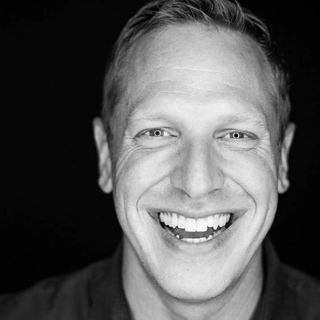Forgiveness
A Sense of Forgiveness, Part 2
Two men on the opposite sides of a crime come together.
Posted July 18, 2018

"I had not heard anything about what had happened until a few years ago when a friend shared a news article with me," Brady Simmons began in a message to his victim.
He was writing to a man he now admits he and a friend mugged 15 years ago in Tacoma: Jason Padgett is the futon salesman who turned into a math savant from Simmons' punches in a very rare case of acquired savant syndrome and synesthesia through a Traumatic Brain Injury (TBI).
Simmons is no longer the man Padgett encountered on that September night in Washington State, either.
"We're both better men than we were back then," Jason said graciously.
"Since then I have watched your TED Talks and followed your story. I am pleased to hear life is full for you," Simmons wrote. "It sounds like you’re very blessed. I feel the same way. Life has changed so much since my early twenties. I struggled with drug and alcohol addiction and eventually found recovery almost eight years ago. Since then things have shifted drastically for me. I am a board member of a national non-profit helping others who are going through similar struggles that I did. I own a business. I am grateful you have the willingness to continue our dialogue."
Jason appreciated Brady's candor and thought about his own brushes with trouble as a young, party guy.
"I went out and drank a lot with my friends and I saw several of them do bad and stupid things while they were drinking," he told me. "I also remember being totally overwhelmed with testosterone. At that age many guys just want to be tough and strong, there were several times that I almost got in fights and when I look back it was just the age and the hormones."
Simmons granted me a brief interview and access to his communications with Jason.
Have you had many sleepless nights over what happened that night in Tacoma?
BS: After the event took place, I had deep regret and big concern that I would face legal consequences. These concerns carried on for years, but at the time I had no idea what Jason was going through. Eventually, the incident faded in memory until a few years ago. After I learned of Jason’s struggles and triumphs I didn’t have as much remorse as conflicted concerns about reaching out.
How have you changed since then?
BS: It is strange, as I listened to Jason tell his story I found many similarities to mine. I, too, was a 20-year-old who loved to party and didn’t yet have a place in this world. My story didn’t change as suddenly as his did, but eventually I realized that I was not living the life I wanted. The biggest thing that has changed for me is the realization that I needed to start to look outside myself for fulfillment. Helping others, being of service, or just relationships with my loved ones became my life priorities.

What advice can you give to people who want to make amends to others?
BS: Making amends can be very difficult and the outcome is never certain, but regardless of how it goes I believe it is a required step to moving forward.
What gave you the courage to reach out?
BS: I am not sure I would call it courageous. It really was just a feeling that it needed to be done.
Jason told me he cannot believe how relieved he feels by the outreach—more than he ever expected. "I'm surprised how good it feels to talk to him. Knowing he regrets it literally makes me teary. How many victims of violent crime get this opportunity?"
The more Jason thinks about it, forgiveness has a shape, he says. This is no surprise given the geometric synesthesia he has experienced and drawn since 2002.

"You can think of time as being the surface area of the space time grid. The more time that goes by the more you spread that pain out over a larger surface area," Jason told me. "I think that's one reason they say time heals wounds."
Simmons similarly has found meaning in art. His portrait of a man with a lantern in China speaks volumes.


